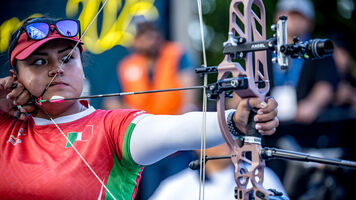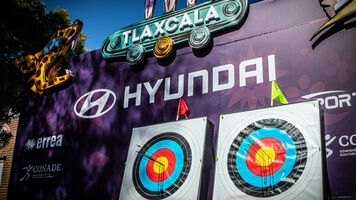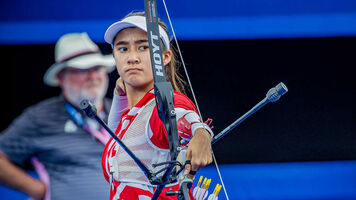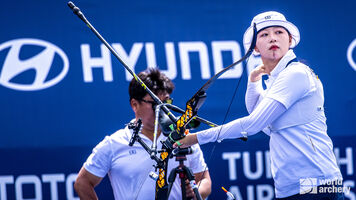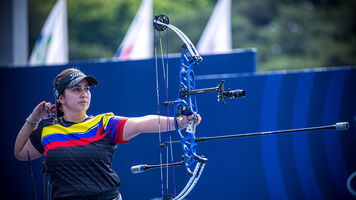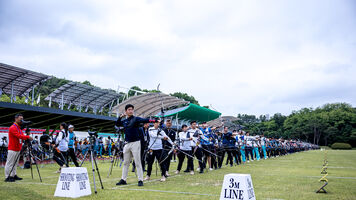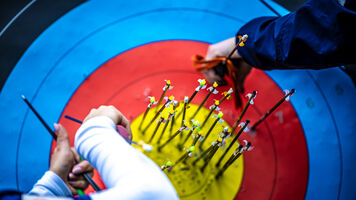Fighting the ‘Olympic hangover’
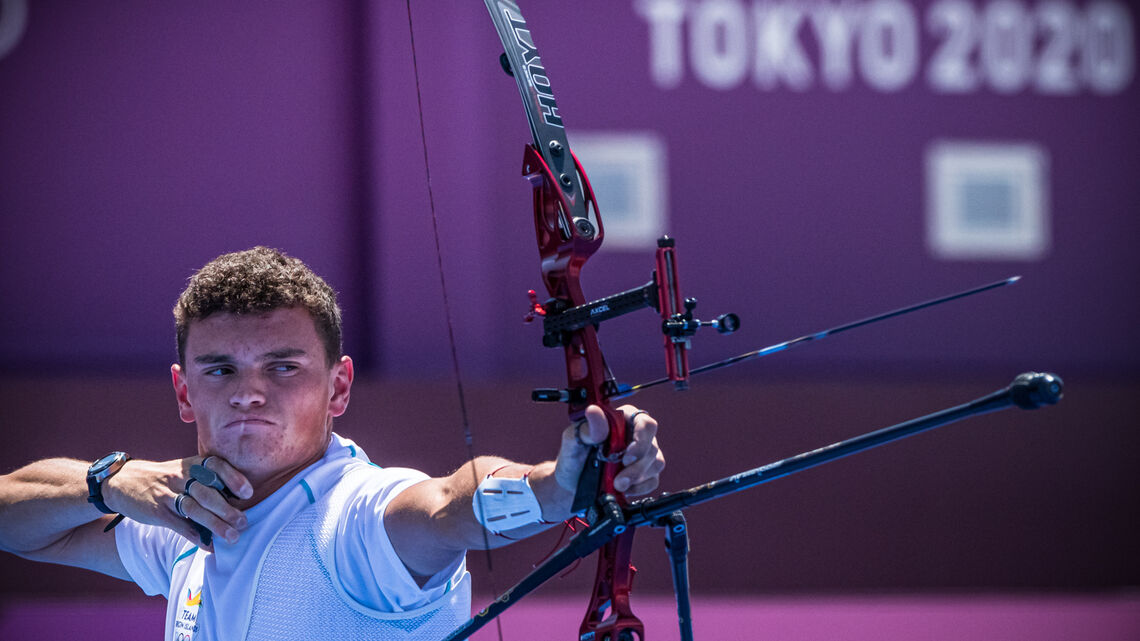
The morning after returning home from the Tokyo 2020 Olympic Games, Lisa Barbelin took a moment to reassess.
She was emotionally drained and physically spent.
“I had never seen anything like it,” she said. “There were so many people from so many different sports, and now I’m a little bit sad because it’s over. It was very, very, very cool.”
The time between her departure from Japan to the Hyundai World Archery Championships, which begin this week in Yankton, marked the longest break in the competition calendar since she could remember.
Barbelin earned her quota at the penultimate Olympic qualifier in June, then quickly transitioned to preparing herself as best as possible for her debut at the Games.
The Frenchwoman reached finals day in the recurve women’s competition after two early-round victories in Tokyo. But a third-round loss to Alejandra Valencia of Mexico signaled her departure from the Japan. Athletes were sent home within 48 hours of competing as part of the strict guidelines meant to contain the COVID-19 pandemic, resulting in an abrupt end to the festivities.
One moment, Barbelin was pushing to become the first woman from France to win a medal in the individual event at the Games. The next, she was back home in Paris, exhaling for the first time in months.
“At first I was sad, because I wanted to go back home with a medal, and now my chance is over,” Barbelin said.
“I didn’t want to watch the rest of the Games. I didn’t want to see who would become Olympic Champion. But my coach told me it was important to use this as a learning experience.”
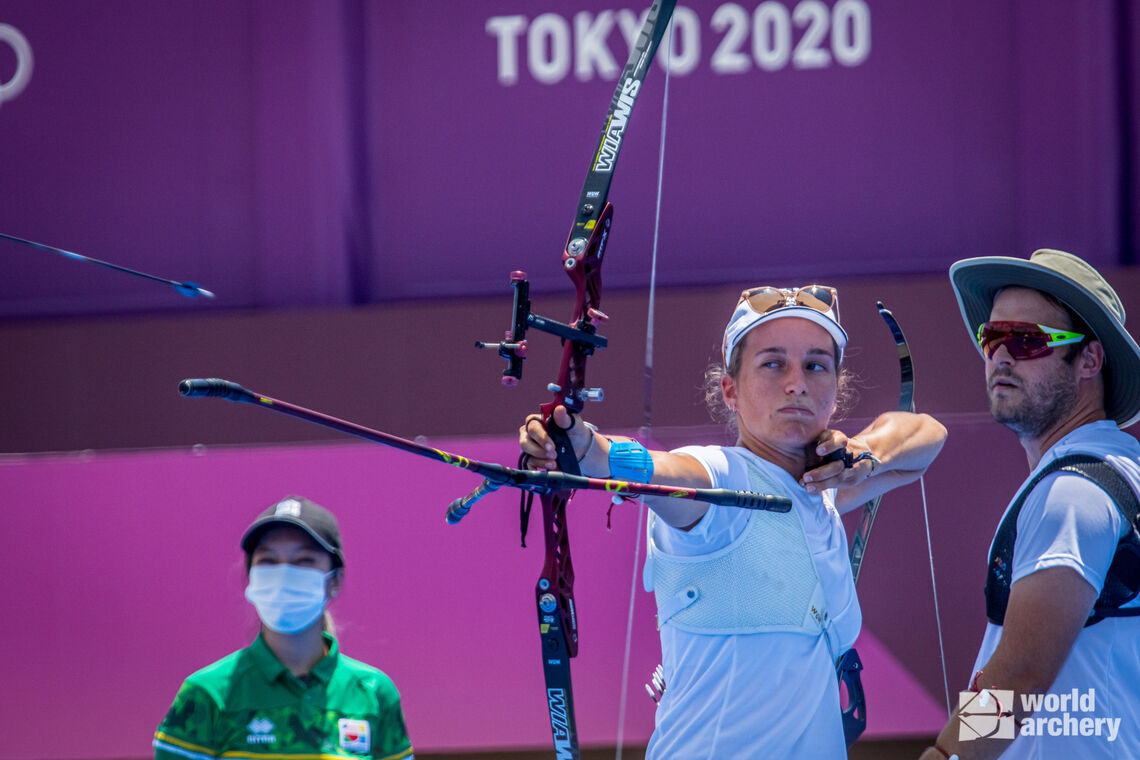
The Olympics are unique, Barbelin explained. while Tokyo was the epicentre of the sporting world in July, the line-up was sparse – at least relative to the collection of archers competing in Yankton.
“It’s the biggest event I’ve ever seen, but it’s also a small competition,” Barbelin said.
“It’s a very interesting thing that archery has done,” Jack Williams added. “In other sports, the Olympics are another step. But in our sport there are many tournaments that are as hard as the Olympics – it’s the same tournament that’s been given a lot more emphasis.”
Qualifying for the Olympics is a massive undertaking, but the field in Yankton is far more imposing.
Rising to the occasion after an extended break and an arduous season, however, requires stamina and discipline.
Despite the possibility of a post-Olympics drop-off, Nicholas D’Amour offered reassurance that the level of quality will be up to standard in Yankton.
“If you don't have the right direction, it can be very difficult to manage,” D’Amour said. “When you have one competition after the other, constant travel and you just continue to work, it can feel non-stop. Luckily, I have a great coach who is able to help me manage my time so I don’t get overwhelmed.”
The end of the Olympics signals a sport-wide reset.
After the year-long delay of the Games, in which archers traversed a diverse array of paths to reach the pinnacle of their sport, the athletes in Yankton are ready to embark on the final stretch of the season.
“I think I’m better now, in my head,” Barbelin said. “I’ve been to the Olympics, and I understand some things about myself. I really want to go to Yankton and win a medal, just the same as the Olympics.”
Competition at the 2021 Hyundai World Archery Championships starts with qualification on Tuesday 21 September.





